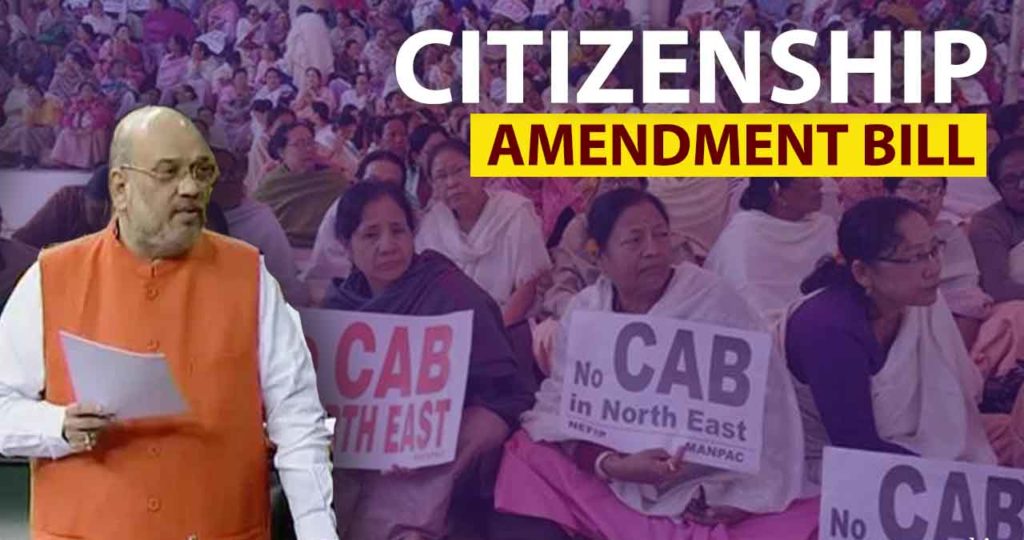
The Citizenship (Amendment) Bill, 2019. Which was passed by the Rajya Sabha on Wendsday11th December 2019, will now go to the President for his assent. Once signed by the president of India it will become part of the constitution. There is widespread agony among the people that their citizenship is endangered by this amendment. Let’s see who will be the possible victims of this. and why the people in India should not feel any pain.
The Citizenship (Amendment) Bill or abbreviated as CAB, this grants Indian citizenship to the non-Muslims of Afghanistan, Pakistan, and Bangladesh was passed by the Rajya Sabha on 11th December 2019. The Citizenship (Amendment 2019) Bill voting in Rajya Sabha was taken after six hours of debate on the legislation. Vice President of India and Rajya Sabha Chairman Shree Venkaiah Naidu had allotted the six-hour time to the MPs to discuss the Indian citizenship bill.
Apart from the Bhartiya Janata Party (BJP), the CAB was partially or fully supported by JD(U), SAD, AIADMK, BJD, TDP, and YSR-Congress. The Shiv Sena didn’t participate in the voting. This bill was passed by the Lok Sabha on Monday with a tremendous majority of 311 votes against 80. Let’s see what exactly this amendment affects the citizenship of who is included and who is not.
Who will now get citizenship from CAB?
The Citizenship (Amendment) Bill proposes to grant citizenship to the non-Muslims Hindus, Sikhs, Christians, Buddhists, Jains, and Parsis — from Afghanistan, Pakistan, and Bangladesh who arrived in India before December 31, 2014.
In different words, the CAB paves means for Indian citizenship to lakhs of immigrants, who determine themselves with any of the given religions, although they lacked any document to prove their residency. It conjointly implies that any migrator who doesn’t belong to the said communities wouldn’t be eligible for Indian citizenship.
Also, as per the Citizenship (Amendment) Bill, any illegitimate migrant from Afghanistan, Pakistan, and Bangladesh who belongs to those said communities won’t be deported or confined if they’re not carrying any valid documents for their residency in the Republic of India.
Earlier, the length of the immigrants’ residency was eleven years. The amended bill has reduced it to five years. this suggests that immigrants from the three countries and from the mentioned religions, who have entered India before the day, 2014, wouldn’t be treated as unlawful immigrants.
CAB EXEMPTS CERTAIN AREAS OF NORTH-EAST, OCI CARDHOLDERS
The Citizenship (Amendment) Bill exempts certain areas within the North-East from this provision.
The Citizenship (Amendment) Bill wouldn’t apply to tribal areas of Assam, Meghalaya, Mizoram, and Tripura as enclosed in the Sixth Schedule of the Constitution and therefore the area lined under the Inner Limit notified under the Bengal Eastern Frontier Regulation, 1873.
This effectively implies that Arunachal Pradesh, Nagaland, and Mizoram together with almost the whole of Meghalaya and parts of Assam and Tripura would keep out of the purview of the Citizenship (Amendment) Bill.
Besides, the citizenship bill additionally makes amendments to provisions associated with the Overseas Citizens of India (OCI) cardholders.
As per the citizenship bill, a foreigner might register as an OCI under the 1955 Act if they’re of Indian origin (e.g., a former citizen of an Asian country or their descendants) or the married person of an individual of Indian origin.
The Citizenship (Amendment) Bill entitles the OCI cardholders to advantages like the right to travel to India, and to work and study within the country. The Citizenship Bill, which was passed in the Rajya Sabha, amends the Act to permit cancellation of OCI registration if the person has violated any law notified by the Central government.
